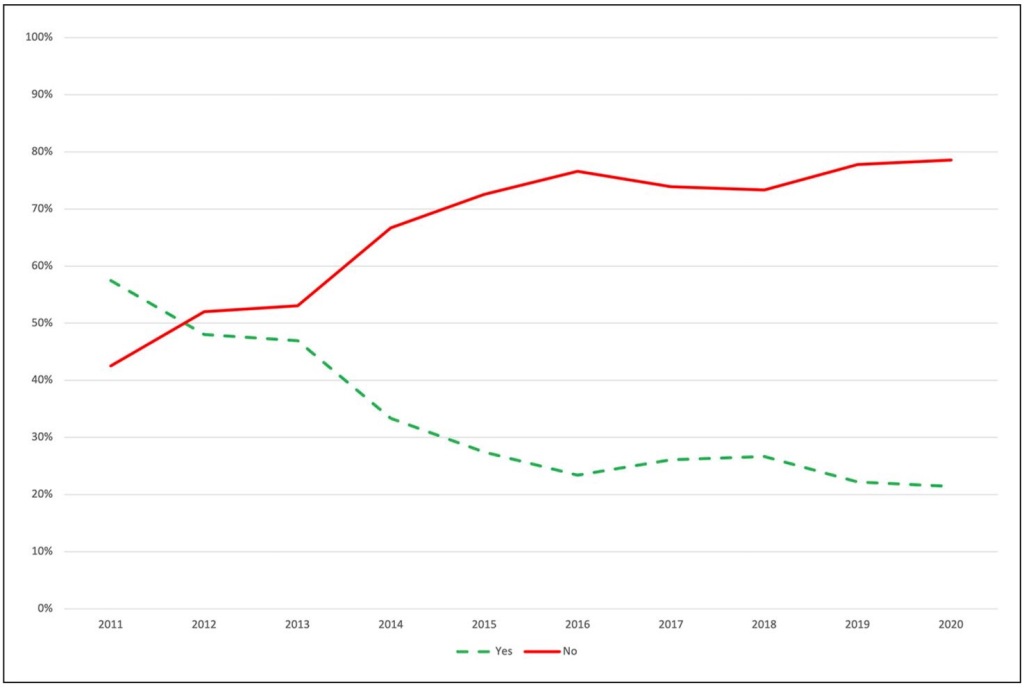You are currently browsing the category archive for the ‘Miscellaneous Governance Issues’ category.
Florian Überbacher (Montpellier Business School), Elke Schüßler (Leuphana University) and Arno Kourula (University of Amsterdam Business School) are calling for submissions to their 2024 EGOS Subtheme on “Regulating Organizations: Re-Examining the Intersections between States and Businesses”.
In view of the grand environmental, political, and social problems we are facing, we would – perhaps more urgently than ever – need a functioning regulatory and legal environment that motivates companies contribute towards making our world more sustainable. But how should such a ‘better’ and ‘smarter’ regulatory system look like and how should regulatory processes be organized?
To address such questions, and connect organizational scholarship with ongoing debates on (trans)national governance and regulation, the aim of this subtheme is to invite scholarship that seeks to integrate, extend, or contradict regulatory and organizational research in novel ways.
The deadline for the submission of short papers is January 9th, 2024.

In March 2021, Alek Tarkowski and Paul Keller published an essay on the “Paradox of Open” on the occasion of launching their Brussels-based Think Tank Open Future. While sketching an agenda for their adovacy work, the essay offered a more sober perspective on the promises previously associated with openness:
While Open works as a strategic (and narrative) approach in specific fields of application, it no longer provides a more general vision of a more just and egalitarian digital society.
More recently, open future published a collection of essays responding to this text. I had the honor to also contribute a response essay entitled “How Openness Becomes Exclusionary” on imported, created and path-dependent diversity deficits in online communities that explicitly describe themselves as “open”:
Read the rest of this entry »
I delivered this statement as a panelist at the RIPE@2022 conference “Between the Fourth Estate and the Fifth Power: Conservation and Innovation in Public Service Media Journalism”, September 19, 2022.
Facing competition from large platform giants, from Facebook to TikTok, how should, how could nationally embedded legacy Public Service Media providers ever even hope to compete with those global competitors?
One way to do so would require embracing digital remix culture with its three foundational pillars: copy, transform, combine.
Read the rest of this entry »
This post is provided by Konstantin Hondros, post-doctoral researcher at University of Duisburg-Essen in the DFG-funded research project “Organizing Creativity under Regulatory Uncertainty: Alternative Approaches to Intellectual Property”.
Though “alternative” (both as an adjective and a noun) has widespread meaning in contemporary society, it is not generally clear, what constitutes and conveys something to be (an) “alternative”. This blogpost’s goal is to offer a more nuanced understanding of the concept and ask how this can guide the use of “alternative” as an analytical lens. To begin with, I give an etymological account, then I look at “alternatives” in philosophy and its significance for epistemology, finally, I describe how social sciences make use of “alternative” in an evaluative manner. While from a philosophical perspective, “alternative” is rather a logical operator, in the social sciences “alternative” evaluates institutions, practices, or beliefs. This evaluative use can be either positive and empowering, ambivalent and skeptical, or even negative and destabilizing. I argue that it is this umbrella-term’s multi-facetted and evaluative nature that makes it analytically fruitful for social sciences.
I thus develop the concept of alternative mainly for practical reasons. Our recently kicked-off DFG-funded project Organizing Creativity under Regulatory Uncertainty: Alternative Approaches to Intellectual Property pursues “alternatives” empirically. We take a closer look at how creative processes unfold when intellectual property (IP) is approached “alternatively” and what obstacles and uncertainties these processes encounter. We compare alternatives to the IP-regulations copyright and patent law with case studies from the music economy and the pharmaceutical industries. Differentiating “ alternatives” will inform our methodological and analytical proceeding as it will give as clearer picture of what we are actually dealing with empirically.
Read the rest of this entry »Today, concerns about academics’ contribution to the future of our planet are growing. While climate scientists have long recognized that their scholarly lifestyle is part of the problem and have developed various kinds of solutions, management scholars are just beginning to more extensively reflect not just about their research agendas, but about their own behaviour as scholars. Management scholars’ environmental impact is not the only issue at stake. Rather, there are problems with a loss of meaningfulness in research work driven forward by rankings, not content, and with a rise of scientific misconduct. Arguably, these issues are related to the ways in which the scholarly community is organized.
The research network “Grand Challenges and New Forms of Organizing”, funded by the German Research Foundation, has taken it as its mission to unpack the reciprocal relationship between societal grand challenges and new forms of organizing. In the spirit of this research agenda, the network has also started to reflect about the challenge of making scholarship itself more sustainable again. During one of its workshops held in March 2019, the network formed working groups around four areas of sustainable scholarship that can be seen as highly interrelated and complementary, thus creating difficulties for change:
- How can we reduce our flying in the light of demands placed on visibility in international research communities?
- How can we make academic careers more sustainable and meaningful?
- Is the strong focus on theoretical novelty by our leading journals itself an unsustainable practice?
- What are alternatives to supporting the unsustainable business model of proprietary publishing?
Environmental impact of scholars Read the rest of this entry »
March 12-15, 2019, Freie Universität Berlin, Germany
Creativity is one of the key concepts, yet among the most slippery ones of present-day Western societies. Today, the call for creativity spans far beyond typically “creative” fields and industries towards becoming a universal social norm. Creative processes, however, are fundamentally surrounded by uncertainty. It is difficult to know ex-ante what will become a creative idea and, due to its destructive force, it is also highly contested. This inherent uncertainty associated with creativity thus spills over to other social spheres, too.
The DFG-funded Research Unit “Organized Creativity” is studying creative processes in music and pharmaceuticals – as representatives for creativity in the arts and in the sciences. The goal of the unit is to understand in greater depth those practices of inducing and coping with uncertainty which are employed by various actors involved in creative processes.
Target Group
The Spring School provides space for exchange between advanced doctoral students, early postdocs and several senior scholars that do research on creativity either in the context of innovation research or in the fields of business and management studies, economic geography, psychology or sociology. Combining lectures from renowned scholars (Prof. Dr. Dr. Karin Knorr Cetina, Prof. David Stark, Ph.D., Prof. Dr. Gernot Grabher, Prof. Dr. Elke Schüßler, Prof. Dr. Jörg Sydow) with the presentation, discussion and development of individual papers, this call invites advanced doctoral students and early postdocs from all disciplines concerned with creativity and uncertainty to join our discussion in Berlin. The working language will be English. Read the rest of this entry »
Guest blogger Rolf Künnemann reports on new directions for cross-border governance and the challenge of realising Extraterritorial Obligations (ETOs) for human rights.

Human rights and states’ obligations are two sides of the same coin. While states are based on their territories, many of their human rights obligations go beyond borders. These “extraterritorial obligations” are increasingly recognised as essential for human rights to provide the foundations of an international people-based political and legal order.
The ETO movement argues that a focus on human rights beyond borders is key to effectively addressing burning issues like the globalized destruction of ecosystems and the climate, the depletion of resources to the detriment of future generations, the dysfunctional international financie and trade system, the oppression of rural communities, ethnocide, the impunity of transnational corporations, and the human rights accountability of intergovernmental organisations. Read the rest of this entry »
Back in 2013 at the Academy of Management Annual Meeting in Orlando, Florida, Jakob Kapeller and I had received the prestigious Carolyn Dexter Best International Paper Award for an article comparing open strategy-making in the cases of Wikimedia and Creative Commons. Today, several rounds of revision later, we are proud to present the article “Open strategy-making with crowds and communities: Comparing Wikimedia and Creative Commons” being published in the journal Long Range Planning. The abstract of the paper reads as follows: Read the rest of this entry »





